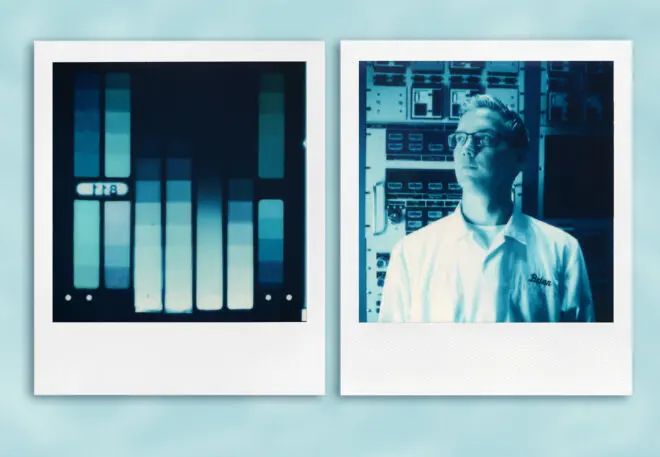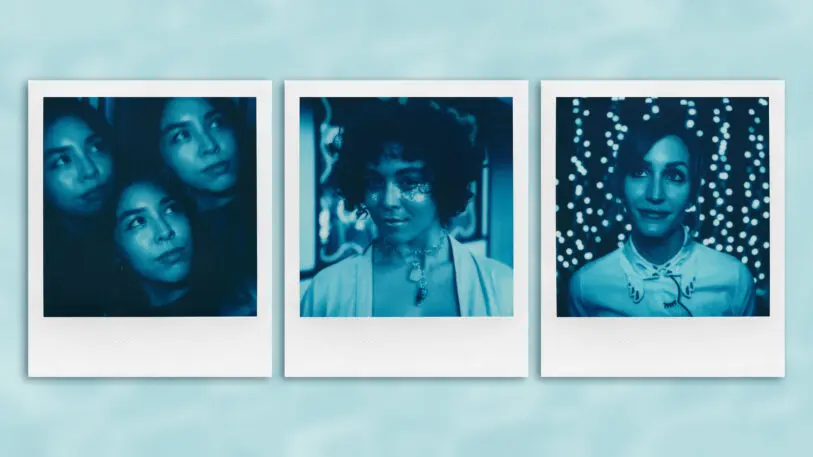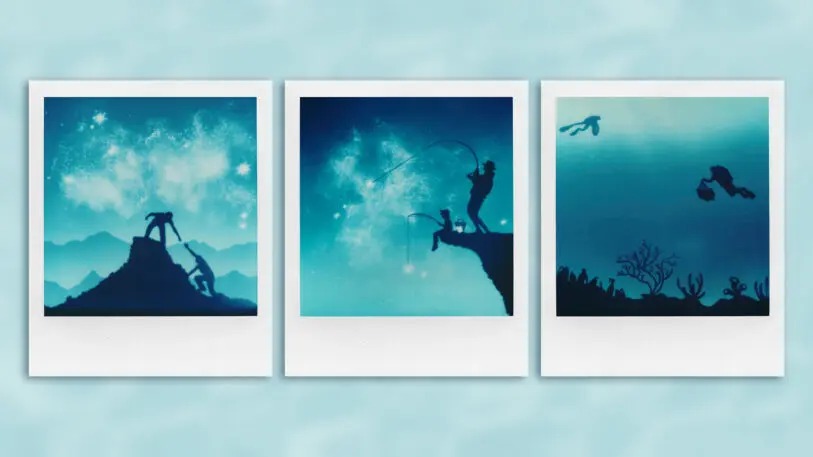Polaroid has a new color film. But not full color.
Reclaimed Blue 600 is, as the name suggests, a blue-color instant film from the company that invented instant photography in the 1940s. Think black-and-white film, but instead it’s all shades of blue.
If that makes you wonder, Well, who wants blue film? you’re not alone. Polaroid doesn’t have an answer. It wasn’t trying to meet some market need for blue film, nor to appease some Picasso-like instant-photography auteur. In fact, the company was not trying to create blue film at all. The whole thing was an accident.

Brian Slaghuis, a Polaroid chemist, inadvertently invented the blue film while trying to improve the full-color variety. Slaghuis was tinkering with the chemicals that underlie Polaroid’s instantly developing film in an effort to improve the chemical makeup and final output. He tried adding some of the ingredients from black-and-white film to the color recipe. When he included a chemical called tertiary butylhydroquinone, it ended up silencing almost all the colors on the spectrum, except for one. The other ingredients for color film are still present, but only the blue comes through.

The result is an eerie, dreamy palette of blues that gives even the most anodyne snapshot an arthouse glow.
The “Reclaimed” in the name refers to the fact that the film is produced on leftover cuts of the light-sensitive negative layer of film used for other Polaroid products, like still-usable bits of fabric from a designer’s floor.
Reclaimed Blue 600 is being released as a limited-edition product, and Polaroid is hoping its accidental creation will spur photographers to do their own experimentation with this uniquely hued film. Bringing the film to market is its own experiment. No one was asking for it, and nobody intended to create it—but here it is, for $16.99 a pack.

The new film also underscores a wild reality: Although Polaroid’s instant film has been around for more than 75 years, the chemistry behind the process is still a bit of a mystery. “Even with my science and chemistry background, I only understand about 20% to 30% of it,” Slaghuis admits via email.
So is there another accidental single-color film hiding in Polaroid’s chemical basement?
“We’re experimenting every day in the Polaroid lab, testing promising formulas in hot and cold conditions as well as with time,” Slaghuis says. “The great answer to this is we don’t know.”
Recognize your brand’s excellence by applying to this year’s Brands That Matter Awards before the early-rate deadline, May 3.
